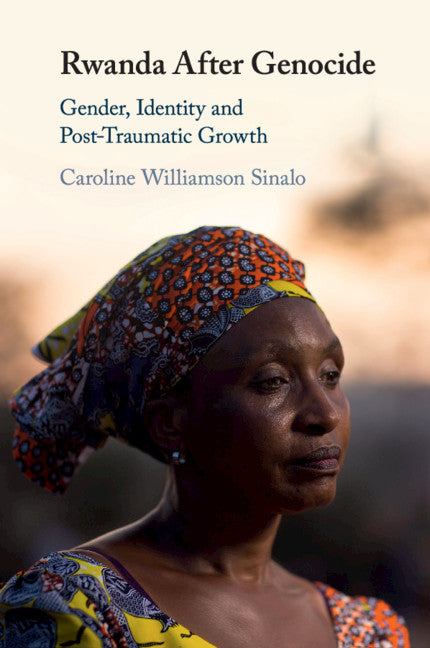Freshly Printed - allow 8 days lead
Couldn't load pickup availability
Rwanda After Genocide
Gender, Identity and Post-Traumatic Growth
Drawing on Rwandan genocide survivor testimonies, this book offers a new approach to psychological trauma that considers both the positive and negative consequences.
Caroline Williamson Sinalo (Author)
9781108444590, Cambridge University Press
Paperback / softback, published 26 March 2020
243 pages, 9 b/w illus.
23 x 15.3 x 1.2 cm, 0.4 kg
'Caroline Williamson Sinalo's nuanced and complex account skewers two clichés about post-genocide Rwanda: everyday citizens lack agency and voice; and the consequences of the genocide for survivors have been exclusively negative. Analysing archival testimonies assembled by Rwandan researchers, Williamson Sinalo shows the limitations of Western theories of trauma when applied to the Rwandan context and highlights the salience of the provocative concept of 'posttraumatic growth'. This book is a must-read for anyone wanting to go beyond the black-and-white accounts of present day Rwanda and the narrow theoretical understandings of 'trauma' that currently dominate the literature.' Phil Clark, School of Oriental and African Studies, University of London
In the 1994 Rwanda genocide, around 1 million people were brutally murdered in just thirteen weeks. This book offers an in-depth study of posttraumatic growth in the testimonies of the men and women who survived, highlighting the ways in which they were able to build a new, and often enhanced, way of life. In so doing, Caroline Williamson Sinalo advocates a new reading of trauma: one that recognises not just the negative, but also the positive responses to traumatic experiences. Through an analysis of testimonies recorded in Kinyarwanda by the Genocide Archive of Rwanda, the book focuses particularly on the relationship between posttraumatic growth and gender and examines it within the wider frames of colonialism and traditional cultural practices. Offering a striking alternative to dominant paradigms on trauma, the book reveals that, notwithstanding the countless tales of horror, pain, and loss in Rwanda, there are also stories of strength, recovery, and growth.
Introduction
1. Defying silence, defying theory
2. Postcolonial posttraumatic growth in Rwandan men
3. Rwanda's women and posttraumatic individualism
4. Communal men and agentic women: posttraumatic growth at the collective level
5. What is really unspeakable? Gender and posttraumatic growth at the international level
Conclusion.
Subject Areas: Genocide & ethnic cleansing [HBTZ], African history [HBJH]


